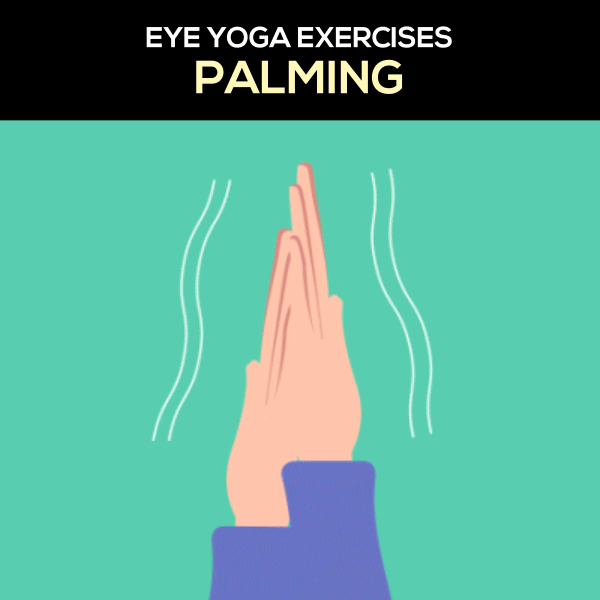
Pranayama, which is a branch dedicated to breathing control, forms an integral part of yoga practice. This technique involves taking deep breaths through both nostrils and keeping the glottis closed. It also requires a neutral spine. This breathing exercise is calming and helps reduce stress. To improve concentration and reduce stress, children can learn more advanced yoga breathing techniques such as Ujjayi Pranayama.
This is a simple breathing exercise that can help relax the body. This is a simple technique that relaxes the abdomen through inhaling and outhaling. The diaphragm is supported by this breath technique. It can last anywhere from six to twelve breaths and can be done in the privacy of your home or office. The benefits of breathing yoga are not limited to improving your mental state. It can improve your sleep quality and increase your mindfulness.

Breathing yoga can be a great way to reduce stress and anxiety. Slow, regular breathing can help you feel more relaxed. When you exhale, your abdomen expands. When you exhale your abdomen contracts. This exercise can help support the diaphragm. This exercise can be done while performing daily activities. To help you breathe effectively, try focusing on a word or image that makes you smile or feel calm.
Even though breathing yoga exercises can reduce stress, you should still listen to your body. Side effects from this exercise can have adverse consequences for your health. You might have to modify your practice or see a physician if you develop depression or anxiety. Before beginning any exercise, consult with a mental-health professional if there are any symptoms such as a lung disease or breathing problems.
Deep breathing and a slower heart beat are two of the many benefits of yoga. Relaxing your body and mind by taking control of your breathing can be achieved by consciously controlling it. Our bodies need oxygen to function properly, so practice deep breathing as often as possible. This breathing exercise is so efficient that it's recommended for athletes. It can reduce stress and increase energy levels. It can also help us relax when we are on the job. It also helps us to sleep better at night.

Breathing exercises are great for reducing tension and stress. By taking deep breaths, you can feel relaxed and reduce anxiety. Yoga requires you to be aware of your breathing. It can help you reduce stress and increase energy. This breathing exercise can be continued for as long as necessary. It will help improve your sleep. And you'll be more alert and more productive. And it will also increase your chances of success at work.
FAQ
What does butter do?
Butter is one the most nutritious sources of saturated oils. This fat is good for hair and skin health, as well as stronger bones.
Vitamin K in butter also prevents bleeding from cuts, bruises and other injuries. Vitamin K is combined with vitamin C to prevent bruises.
Butter is also rich with minerals, such as calcium and phosphorous. These minerals promote stronger bones, teeth, and teeth.
Butter is not without its flaws. Butter contains high levels of cholesterol. Studies show that too much cholesterol can increase your risk of developing heart disease.
Also, butter is high in saturated fat, contributing to obesity and increased cholesterol levels.
But if butter is a must, you can spread it on bread and not dip it in soups or salads. Bread will absorb more oil than pasta or potatoes.
Is cardio exercise good for your health or bad?
Cardiovascular exercise has many benefits. It improves blood circulation, strengthens heart muscle, gives you energy, and can even help you lose weight.
Cardiovascular exercise includes running, biking, hiking, swimming, tennis, basketball, soccer, volleyball, football, etc.
It is important to keep in mind that cardio exercises should not only be performed at a high level of intensity, but also at low levels. This could result in injury.
Only do the cardio exercise when you are feeling good.
You should never push yourself beyond your limits. You could injure yourself if you do.
It is important to warm up before you begin any cardiovascular exercise. Next, increase your intensity gradually.
Listen to your body. If you feel pain when doing cardiovascular exercise, you should immediately stop.
After a cardio workout, it is a good idea to take a break. This will give your muscles time for recovery.
Cardiovascular exercise can help you lose weight.
This is the best way to lose weight and belly fat.
How does weightlifting help you lose fat more quickly?
Weight lifting is a great way to burn fat faster but you need to do it together with cardio exercise.
It is important to do weightlifting right after cardio exercise in order to reap the full benefits.
Weightlifting, when done properly, increases your heart rate.
However, if you don't combine it with cardio you won't see any significant changes to your body composition.
Is it true?
Protein is essential for healthy bones and tissue. Over-consuming protein can result in calcium being excreted through the kidneys. In turn, this can result in kidney stones.
It is important to keep in mind that not everyone will develop kidney stones if they consume more protein than 2 grams per kilogram (2.2lbs). You don't have to eat a lot of protein to get kidney stones.
Your sodium intake can prevent kidney stone formation. Sodium is important for maintaining the body's water balance. Too much sodium results in a higher risk of developing kidney stones.
If you have kidney stone, you might also consider reducing your protein intake. The majority of adults need protein for half their daily caloric needs. You'll lose weight if you reduce your intake of protein.
If you do decide to eat more protein, don't go overboard. You should aim to consume less than 20% of your total calories from protein.
What does milk do?
Next time you buy milk think about what you could do with it. You might also find it helpful to stop drinking coffee.
Both children and adults have been shown to benefit from milk. Milk contains nutrients like vitamin D. Calcium, potassium, phosphorous, magnesium, and other essential nutrients.
It is also good for digestion and bone strength. Dairy products are more beneficial for adults than any other food.
Lactose is also a major component of milk, so those who are unable to digest it easily can still enjoy the benefits of this sugar without having stomach problems.
Drink more milk than soda and juice. The extra calcium and vitamin D found in milk can help strengthen your teeth and bones.
Plain low-fat yogurt is another option if milk tastes bland to you. Yogurt, which is lower in calories but higher in protein, is a great option to milk.
Yogurt also includes probiotics. These help in digestion and improve immunity.
A glass of warm milk is a great way to get a good night's sleep if you're having trouble getting to sleep. Warm milk helps relax muscles and boosts serotonin levels.
Statistics
- According to the American Academy of Dermatology (AAD), men over 50 are at a heightened risk of developing it. (healthline.com)
- According to the American Heart Association, blood pressure should be checked at least once every two years, beginning at age 20. (my.clevelandclinic.org)
- Get free shipping and 25% off today. (healthline.com)
- By John Thompson Take a whopping 38% off a set of PowerBlock Pros. (menshealth.com)
- An estimated calorie range for moderately active adult males falls between 2,200 to 2,800 calories per day, depending on age. (eatright.org)
External Links
How To
How do I lose weight while working out?
Exercise burns calories by increasing metabolism and oxygen consumption.
Moderate intensity exercise is a safe way to lose weight.
To burn fat while exercising, follow these tips:
-
Cardio exercises like walking, running (or jogging), swimming, cycling, running, and/or elliptical training are all good options.
-
Do 30 minutes of exercise three times a week.
-
Strength training is a great way to lose weight.
-
Avoid intense training. You can build muscle without having to lose muscle tissue.
-
During exercise, drink plenty of water. Water flushes out toxins, and keeps your body properly hydrated.
-
After working out, make sure to drink low-fat proteins shakes. Protein shakes can help boost energy and repair muscles.
-
Take smaller meals throughout each day to avoid feeling hungry.
-
Don't skip breakfast! You can feel tired and slow if you skip breakfast.
-
Take care to your mental well-being. Stressful situations can slow metabolism.
-
Keep a positive attitude. Research shows that overweight people gain more weight if they believe they are overweight than those who believe they look good.
-
Get enough sleep. Lack of sleep makes it harder to burn fat.
-
Stay active. Be sure to get up and move around every hour or two.
-
Maintain a healthy diet. Eating right keeps you feeling full and satisfied longer.
-
Find ways to relax. Relaxing doesn't mean your body releases stress hormones which cause muscle tissue to be destroyed.
A balanced diet contains all necessary nutrients for growth and development.
Eat six small meals each day instead of three large ones. This gives your body the time it needs to process what you've eat.
For strong bones, we need 500 mgs of calcium daily. Calcium is available in dairy products like milk, yogurt, fortified soy beverages, orange juice, cereal, bread, and cereals.
Calcium is found in leafy green vegetables and beans, tofu as well as nuts, seeds, cheese, and seeds.
Vitamin D is required by the body to absorb calcium. Vitamin D can be found in egg yolk, fatty fish, and other fortified foods.
Vitamin E plays an important role in skin health. Vitamin E can also be found in vegetable oil, wheat germ oils, peanuts as well almonds, sunflower seeds and corn.
Your body needs zinc to maintain normal immune function and heal wounds. Zinc can be found in seafood, legumes and meats.
Zinc deficiency can cause fatigue, loss of appetite, depression, and impaired immunity.
Consuming too much sugar can cause insulin resistance. This causes an increase in blood glucose levels. Insulin resistance can lead to weight gain.
When there is a high level of free radicals, insulin resistance can develop. Free radicals can be molecules with unpaired electrons that cause damage to cell membranes.
Most free radicals come from pesticides herbicides, food additives, preservatives smoking, radiation, chemical in cosmetics, lotions and household cleaning supplies.
Free radical damage can lead to cancer, heart disease, diabetes, arthritis, asthma, and aging.
The best way to avoid free radicals is to eat a balanced diet high in antioxidants. Antioxidants protect against oxidative damage.
Vitamin C is found in citrus fruits and beta carotene is found in carrots.
Additional antioxidant nutrients include selenium and copper, manganese and zinc.
Selenium helps protect cells from oxidative damage caused by free radicals. Selenium is also found in Brazil nuts.
Copper protects eyes, brain, lungs and red cells. Copper is found in shellfishes, poultry, meat, organ meats, and other foods.
Manganese is essential for bone structure. Manganese is found in brown rice, spinach, bananas, prunes, raisins, oatmeal, and lentils.
Zinc is necessary for average growth, reproduction, and wound healing. Zn is found in lean meats, poultry, white fish and eggs.